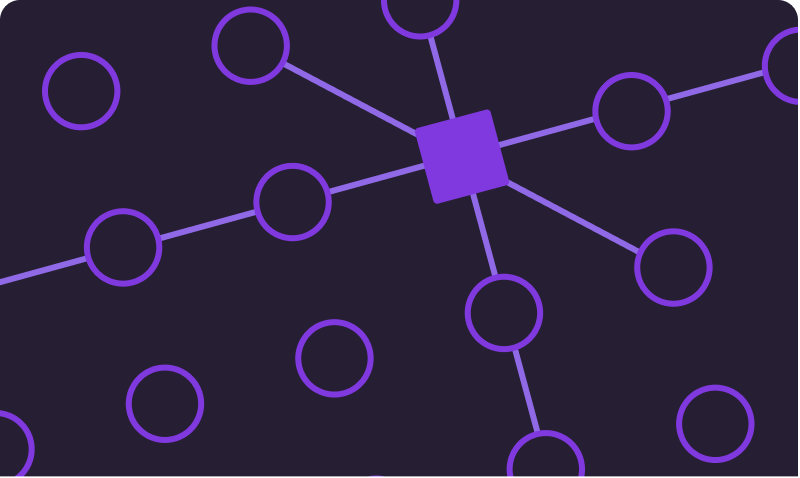3 practical applications of AI enablement leaders can use to transform revenue orgs
Stay up-to-date with data-backed insights
Thank you for your submission.

Today’s revenue leaders face some troubling trends:
- 77% of reps’ time is not spent selling (Forrester)
- 70% of strategic initiatives fail (McKinsey)
- 53% of deals committed to close don’t actually close (Gartner)
In other words: Revenue leaders are fighting low productivity, predictability, and growth.
Leaders used to be able to address these issues by hiring more reps and hoping it would all come out in the wash. But not today. They’re being asked to do more with less — to generate more with fixed headcount.
Enablement teams play a pivotal role in addressing these problems. Enablement can be a linchpin for GTM orgs, helping with everything from training and upskilling to aligning the org around new initiatives designed to address growth issues. And generally, enablement leaders have an inkling that AI can help them do all this.
AI’s data collection and processing capabilities give it tremendous potential to positively impact enablement’s workflows and key initiatives. Unfortunately, most leaders don’t know how to turn that potential into reality.
Gong has a bit of an advantage on this front. We’re pioneering technology that uses AI to supplement every facet of revenue organizations, enablement included. As Gong’s VP of GTM Enablement, a few simple, practical applications of AI have substantially improved my ability to make a material impact on our business.
How I use AI to create enablement initiatives that drive higher productivity, predictability, and growth
Productivity: More time spent selling well
One of the main benefits of our platform is that it helps leaders understand areas where reps need more coaching. One rep may be a good prospector but a poor negotiator, while another may be struggling to get high enough in accounts to reach economic buyers.
Our AI will highlight each of these — and numerous other — problems, and we then use the insights to develop training that addresses the most common and impactful issues.
AI also helps our reps spend more time selling. It can prescribe next steps — like when and how to follow up with specific buyers — and write the follow-up emails. The more time reps spend selling, and the more we turn their weaknesses into strengths, the more productive the whole org becomes.
Predictability: Training around successful initiatives
Why do 70% of strategic initiatives fail? Largely because of monitoring issues — tracking seller adoption, real-time deal progress (including conversation highlights), and the initiative results.
AI solves this through two main capabilities:
- Analyzing sales calls with active learning AI (like Gong’s Smart Trackers). Using Smart Trackers to populate initiative boards enables us to more effectively analyze sales calls and to categorize content. For example, if someone mentions “the stock market,” it will track that and categorize it under “macroeconomic trends.” If someone mentions “budgeting,” it will categorize it as “business drivers.”
Smart trackers turn specific conversational content into concepts, and assess the percentage of calls in which terms associated with strategic initiatives were mentioned. We use this data to assess adoption, understand what is and isn’t working, and ultimately craft enablement around what has proven to be effective.
- Deal boards. AI also powers deal boards which indicate key signals, identify sales steps, and prescribe next actions. The main benefit of deal boards is that they give us an accurate sense of pipeline health: which deals are likely to progress and which aren’t, based on a volume of analysis that only AI could provide efficiently.
In turn, we use this data to give sellers a more accurate sense of the typical buying process and the steps it takes to move deals along.
Growth: Reinforce trainings with automated intel
Revenue leaders often implement qualification frameworks and sales methodologies, like MEDDICC or BANT, to find higher-quality opportunities and handle them more effectively.
Gong has a feature, called AI Methodology Playbooks, which segments each deal into each of the framework’s stages (for MEDDICC: Metrics, Economic Buyer, Decision Process, Decision Criteria, Identify Pain, Champion, Competition). Within each stage, AI auto-populates a field with its understanding of the stage, which it will do in seconds, based on a holistic analysis of all buyer interactions.
This feature supplements enablement by reducing the manual effort required from reps to abide by sales methodologies. It also helps managers facilitate methodology adoption, thereby increasing the chance that reps will make the most of new frameworks.
AI: A super-analyst for enablement leaders
Before AI, enablement leaders depended heavily on guesswork. They relied on limited data from LMS systems and certification stats, giving them limited insight into how best to ramp new reps, coach existing reps, and do all the other multifaceted work that goes into optimizing the GTM org’s productivity, predictability, and growth.
AI presents an excellent opportunity for enablement leaders to impact all three areas without adding headcount. AI essentially functions as a super-analyst, ingesting huge stores of data and producing enormously valuable insights. These insights are gold for enablement leaders looking to have a profound impact on their organizations.



